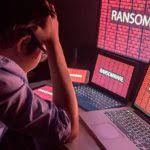Indonesia The Lockbit 3.0 Ransomware Attack and the Fight for Recovery.
The Indonesian government is engaged in a frantic battle to recover from a devastating ransomware attack that crippled vital public services last week. The attack, one of the worst in the country’s recent history, targeted 44 government agencies, including key ministries, and disrupted crucial operations like immigration services and airport activities.
The culprit behind the attack?
The notorious Lockbit 3.0 ransomware, which has wreaked havoc on organizations worldwide. The attackers demanded a hefty ransom of $8 million, highlighting the brazenness and financial motivation behind this cybercrime.
A Wave of Disruptions:
The impact of the attack was felt across the country, causing widespread inconvenience and disruption. Immigration services came to a standstill, leaving travelers stranded and raising concerns about border security. Airport operations were severely affected, leading to flight delays and cancellations. The attack also impacted other critical government functions, exposing vulnerabilities in the nation’s digital infrastructure.
Government Response: A Race Against Time:
The Indonesian government has launched a multifaceted response, focusing on restoring affected databases and bolstering cybersecurity defenses. The Communications Ministry, leading the recovery efforts, is working tirelessly to bring back online critical systems and mitigate the long-term damage.
However, the road to recovery is likely to be long and arduous. Experts warn that complete restoration could take weeks, if not months, and the costs of the attack, both financial and reputational, will likely be significant.
Lessons Learned: The Need for Enhanced Cybersecurity:
This attack serves as a stark reminder of the evolving nature of cyber threats and the importance of robust cybersecurity measures. It highlights the vulnerabilities that exist even in critical government infrastructure and underscores the need for a proactive approach to cybersecurity.
The Indonesian government must prioritize:
* Investing in advanced cybersecurity solutions: Implementing robust security measures like multi-factor authentication, firewalls, and intrusion detection systems is paramount.
* Improving incident response capabilities: Developing a comprehensive plan for responding to cyberattacks, including data recovery protocols and communication strategies, is crucial.
* Promoting cybersecurity awareness: Educating government staff and the public about best practices for cybersecurity is essential to preventing future attacks.
Moving Forward: A Shared Responsibility:
The fight against cybercrime is not just the responsibility of governments. Organizations of all sizes, including private businesses and individuals, must play their part in strengthening cybersecurity defenses. Collaboration and information sharing are essential to combatting this growing threat.
As Indonesia navigates the aftermath of this unprecedented attack, the nation has a unique opportunity to learn from its experience and emerge stronger. By investing in advanced cybersecurity infrastructure, fostering a culture of cybersecurity, and working together, Indonesia can build a more resilient and secure digital future.






